Angela Bassett: Getting Her Groove On As Narrator of National Geographic’s ‘Queens’
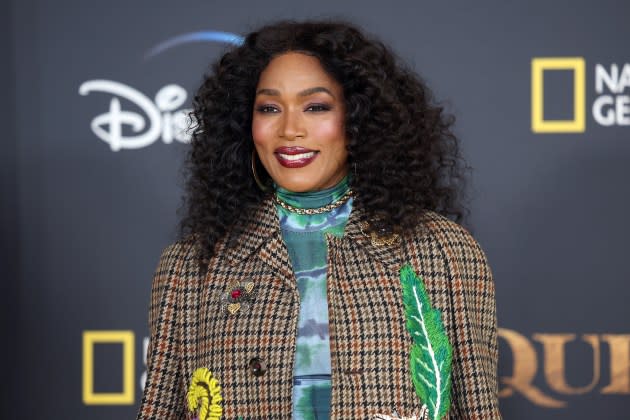
Angela Bassett’s career took off in the 1990s with films including What’s Love Got to Do with It – which earned the actress her first Oscar nomination — Waiting to Exhale and How Stella Got Her Groove Back.
But her success in just the past half-dozen years has managed to surpass the Yale Drama School graduate’s initial rise to fame.
More from Deadline
In the latest example of a surge that began with 2018’s Black Panther, Bassett’s powerful, mellifluous voice provides the narration for a groundbreaking Emmy-contending National Geographic wildlife documentary series, Queens, which chronicles the natural world and its distaff leaders through a uniquely female lens.
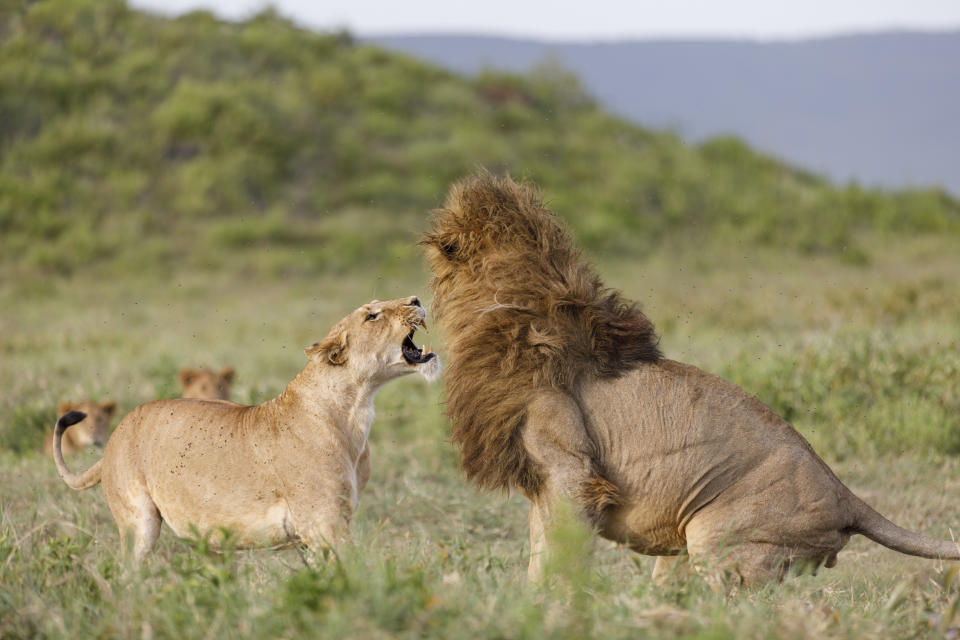
Bassett’s voice illuminates stories of species as diverse as elephants, hyenas, whales, lions and bears and how they are led by females with a range of leadership styles. It’s another breaking of the mold of traditional natural history filmmaking, which has historically used a man as a “voice of God” narrator.
Perhaps Bassett’s work can now be considered “voice of Goddess.” It ranges from dramatic to apprehensive, exuberant to playful, and comedic to awe-inspiring. She comes to the recording booth as a seasoned VO pro. Bassett has earned three Primetime Emmy nominations in recent years as a narrator, in 2019, 2020 and last year for voicing Prime Video’s documentary Good Night Oppy, about NASA’s robotic mission to Mars.
Deadline spoke with Bassett about the experience of working on Queens, her role on the continuing hit show 9-1-1 and what receiving her recent honorary Academy Award means to her and to others striving to survive and thrive in the entertainment industry.
DEADLINE: What initially drove you to become the executive producer and narrator of this incredible project for National Geographic?
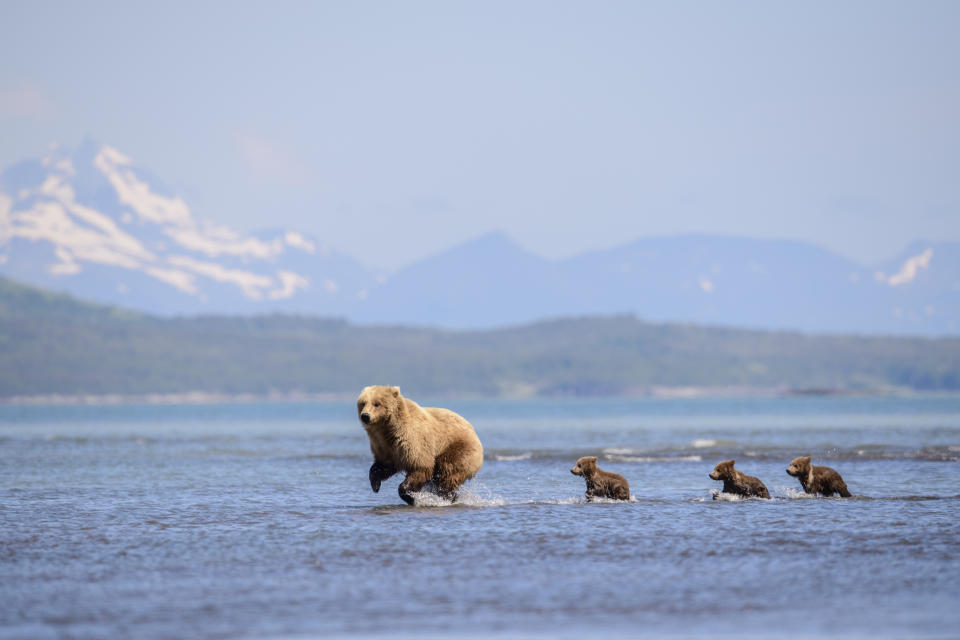
Angela Bassett: NatGeo approached me, and they sent me the sizzle reel and said a little bit about what the project was. And, of course, it was summertime and you’re just like, “Oh, I’m free. I want to go on vacation.” No, no, no. I’m so glad that they came back because then I was able to get more into it. And when I found out that it was such a celebration of female power, not only in the natural kingdom, but additionally behind the scenes with the director, the director of photography, the women who were documenting the series, then that just thrilled me through and through and I was dumbfounded that I could have missed out on such an enormous and profoundly wonderful opportunity. So, I was so glad that it came back around because that really touched me because heretofore, documenting wildlife has been such a male-driven endeavor. So, to see this change, the face of that is magnificent. Groundbreaking.
DEADLINE: Tell me about working with the beautifully written script and how you brought such emotion and feeling to it, ranging from awe to delight, humor, sadness, everything.
I agree with you… I got to look at [the script] and I was just astounded, thrilled, touched and in awe of the stories that we were telling, of what they were able to document. I was encouraged just to have fun in the way that it was shot. And then on top of that, to add the great music that is such a character. It was also filled with global female artists — I was dancing in my seat while I was recording, and you couldn’t help but to have just spiced it up and just bring all the attitude to it that it inherently had going for it.
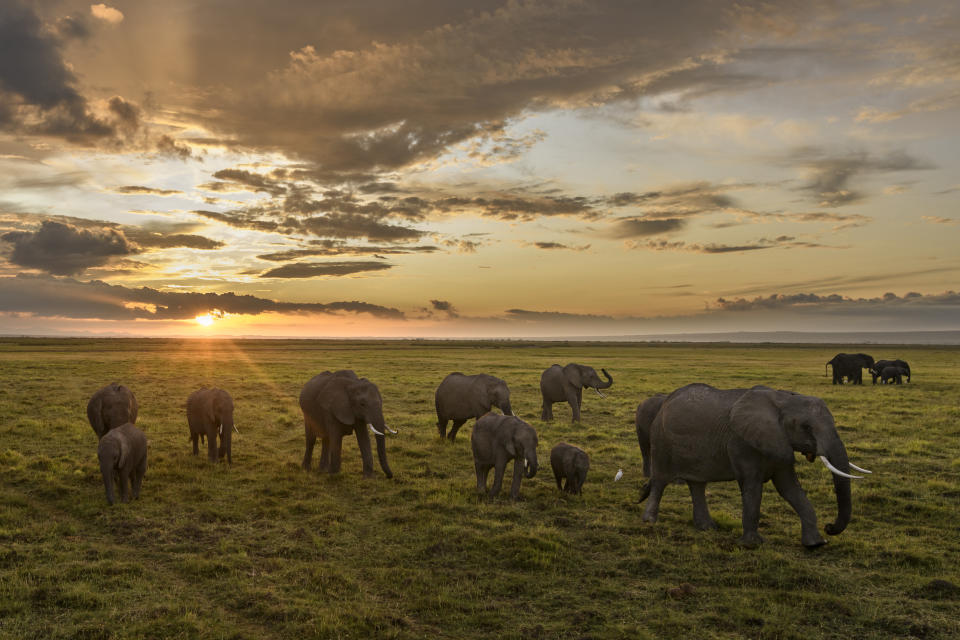
DEADLINE: Which of the animal queendoms do you most resonate with and why?
Of course, the elephants, the sisterhood that they possess. It’s just so beautiful. Just the idea of family and the way they are and just how emotional they are for such large creatures, but very family oriented and there for each other from beginning to end, but also the bonobos monkeys, and that same sort of feeling that they engender.
DEADLINE: Let’s talk about some of the themes that are depicted throughout this series, including the universality of female power, resilience, sacrifice, friendship, and love.
Well, yeah, those are the positive aspects.
DEADLINE: Well, let’s talk about the “other” aspects.
Yeah, we have other matriarchs that we find on the other end of the spectrum, and they’ll go through great lengths to maintain their power and their position. So, it truly is fascinating when you think of femaleness. It’s neither this nor that. It encompasses the entire range.
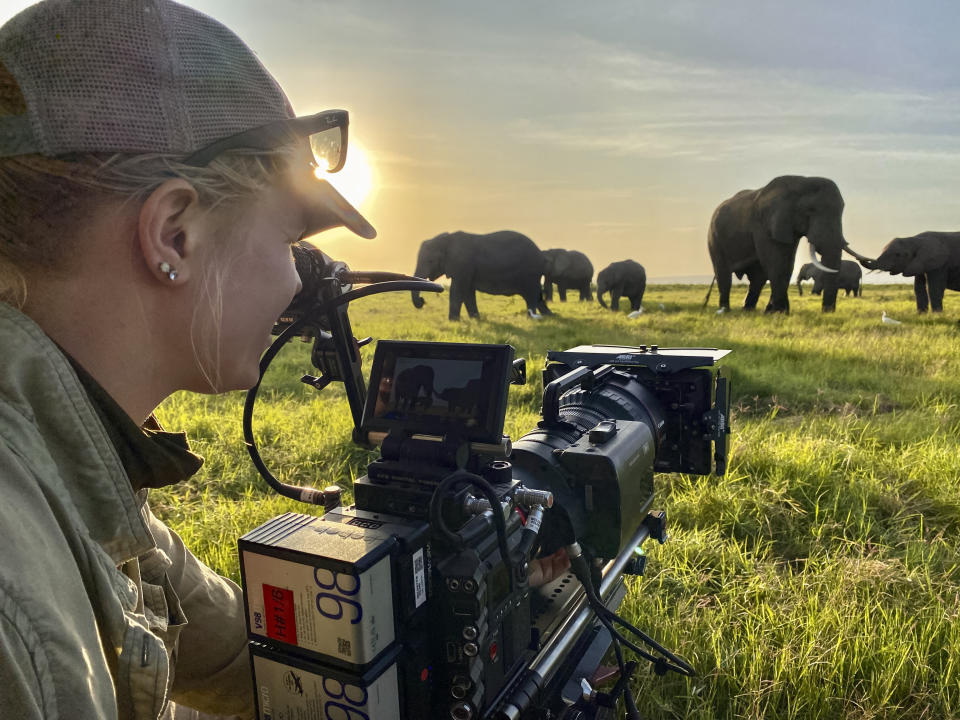
DEADLINE: You were mentioning the incredible crew behind the scenes. And in the episode “Behind the Queens,” you spoke with a lot of them. What are some of the elements they brought to the table that most inspired you?
It was four years in the making and it’s told by this incredibly led female team and production team behind the scenes. I think the cinematographers Sophie [Darlington] and Justine [Evans] were just phenomenal. And not only did they go to some of the most incredible locales on the planet, just the lengths that they went to document some of the animals, I just held my head. It is not for the faint of heart, not for everyone. I’m so thankful to them that we are able to witness what goes on in some of the places that we’ll never get a chance to lay our eyes on. But not only did they film it with such excellence and such artistry, but I appreciate that they were dedicated to training women from around the globe and supporting them in changing the face of wildlife TV. And these women from some of the locales are giving back and trying to encourage and save these animals and help them. It’s a very fresh perspective, it’s unyielding, unimaginable dedication, and I’m just proud to be a part of this testament.
DEADLINE: Let’s shift gears to another huge project for you currently, and that’s 9-1-1. You’re going to keep putting your life on the line as the show goes into its eighth season. Tell me about some of your experiences in your role as Athena Grant-Nash and your storyline with Athena’s husband Bobby Nash (Peter Krause).
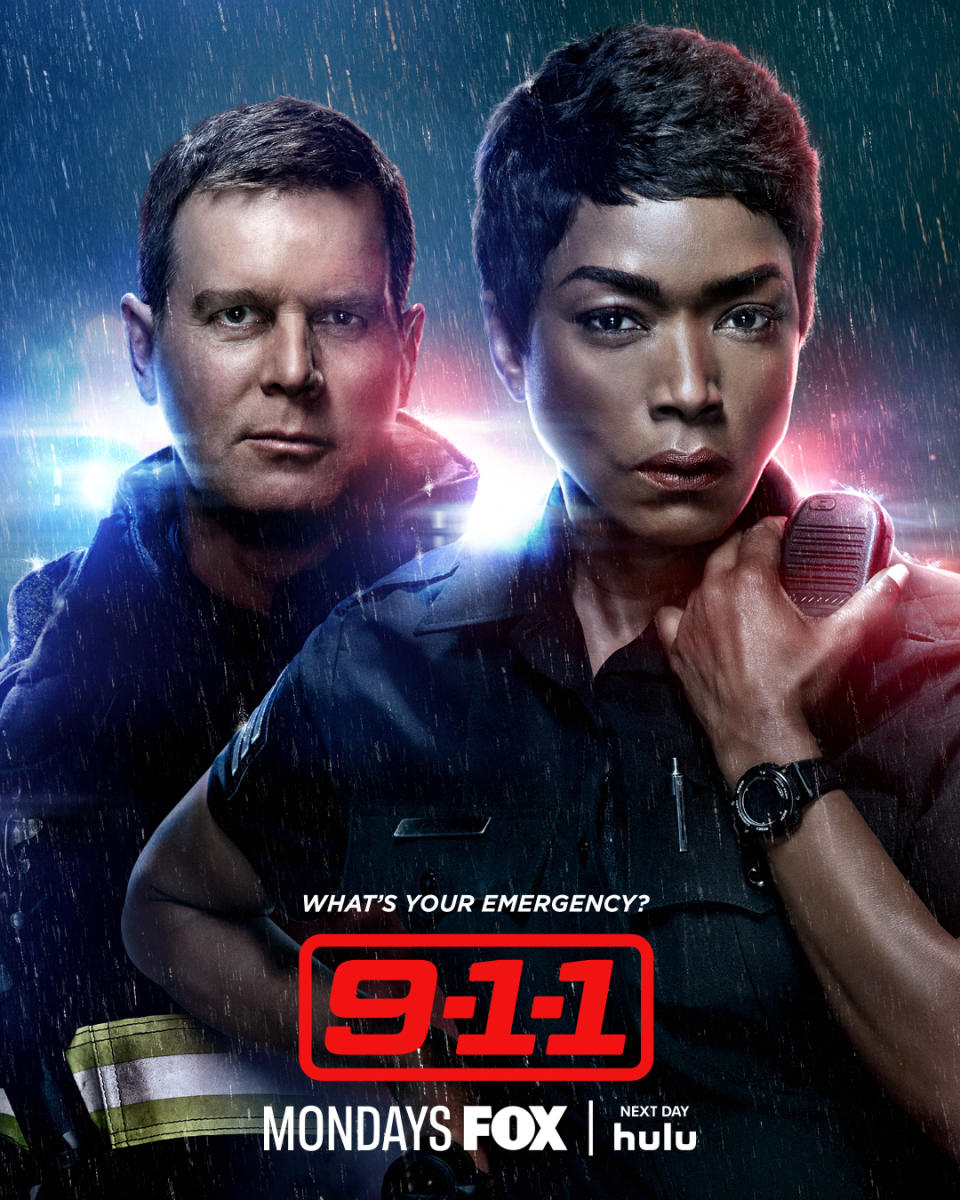
We’re still in the midst of that and with Athena and Bobby from time to time, emotional stuff comes up. It’s either from past life, and especially this year, we are revisiting where he is emotionally or whether he knows it or not. So, we’re visiting some of those past situations with him and his family dynamics, his work dynamics and the incredible incident that his character went through that affects him that he hasn’t thought about in a while, but it still affects him emotionally. And of course it affects the family with Athena, these grown kids that she has and how that changes the dynamics in the family between the four of them, or of course between Bobby and Athena.
DEADLINE: We’ve been speaking about Queens, but of course you are a queen in that you have grandly played Queen Ramonda in the Marvel Black Panther movies. What have been some of the highlights of portraying her for you?
Oh my God. I would say not only onscreen, but behind the scenes, working with incredible an director and artisans to tell the story, both with the script and visually. It’s been incredibly rewarding to bring forth that representation of a Black woman as Queen in this position. It’s something that I have longed to see myself, and it’s just been an inspiration to women everywhere. So, it’s just very satisfying. Unfortunately, this queen sacrificed her very being for the queens to follow, and there are always queens who follow.
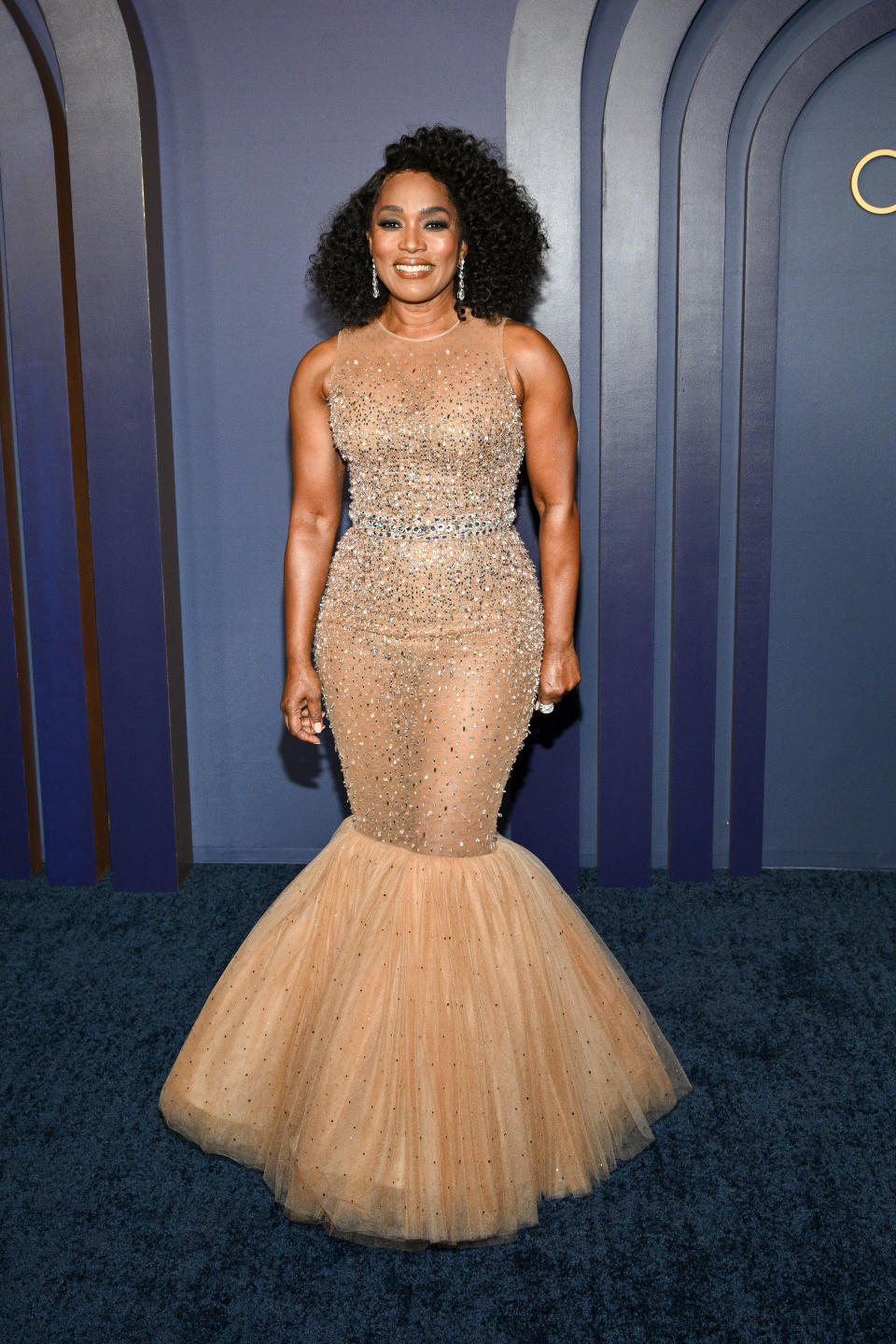
DEADLINE: Congratulations on your honorary Oscar! Your speech [at the Governors Awards] was so inspirational and you spoke about the history of Black actresses in Hollywood and said the goal was to remember there is room for us all, and saying the best is yet to come.
That’s just simply taking this life of experiences that I’ve been through and distilling it down to that there is always hope. There is always the best. You should never be satisfied. You should always dream and continue to place one foot in front of the other. The moment you consider giving up may be the very moment that the tide turns, everything turns for you. So, you must persevere until the last breath and persevere with graciousness and gratitude if it lies within you. And if not, seek it out and find some. But yes, there is always room.
And in this business of acting and roles and possibilities, sometimes you feel it’s one role, but sometimes a closed door shows you the open window. There’s always a path and a way, as long as you endeavor to find it. And you have the passion and the focus and the fortitude. And I try to give that message just in the way I walk and the way I talk, and to impress others that we get into this not for the awards, but for the reward of being able to touch someone with the work, with your own individual creative process is a beautiful thing. It’s a blessing to be able to do so. Don’t become discouraged when awards don’t come. Continue to be encouraged because you may touch a life and that’s far, far better instead.
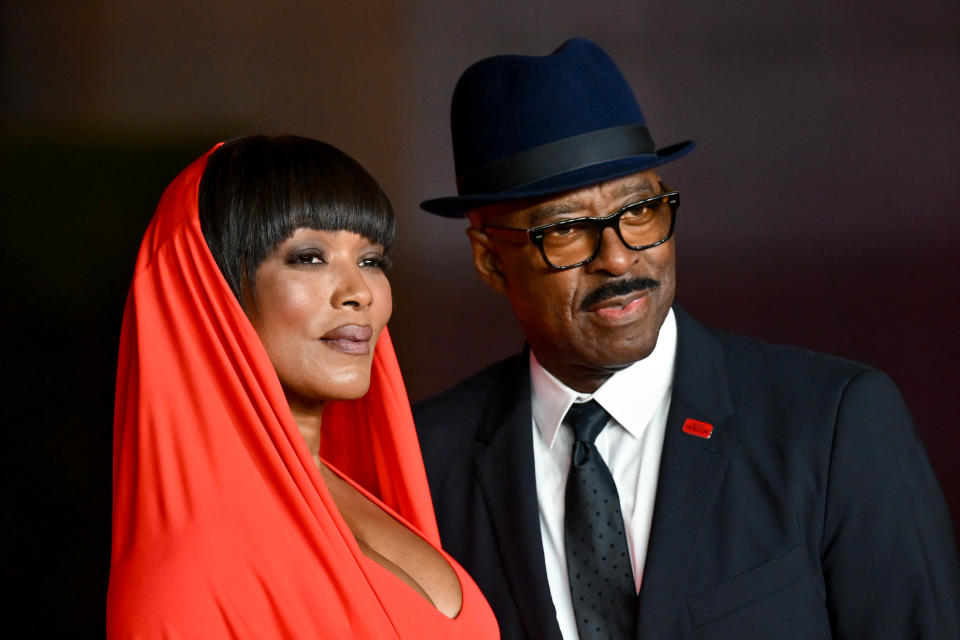
DEADLINE: Queens is certainly not the first project you’ve narrated. You’ve been Emmy-nominated for three other narration roles. And you were the voice of Mr. Smith’s boss in the 2005 hit film, Mr. & Mrs. Smith. Did you make a conscious decision to start doing voiceover and narration, or did something come to you that made you go on that path as well as acting and producing?
Well, in the early days I saw that it was another avenue: TV, film, voiceover. I would try to work with someone or begin to contemplate it, but it would take many, many years before I actually got a job doing it. But it was something that was in my consciousness in the early days of moving to New York, graduating from drama school. And I remember taking a lesson with Adolph Caesar. He was in A Soldier’s Story. He was the father — the original father — in The Color Purple. He was phenomenal. His voice was male, magnificent. So, I remember taking a few one-on-one sessions with him.
DEADLINE: James Earl Jones is also an incredible narrator.
Oh, absolutely. And he, of course, was my impetus to becoming an actor in the first place. Yeah, seeing him on stage — that did it for me. It just did it for me. I was moved beyond recognition and belief.
DEADLINE: You have such a great love of theater. Do you have anything you’re looking at on Broadway or elsewhere on the stage coming up?
We had just visited [New York] and saw about five plays and ran into the playwrights, and we started talking about potential of just the ideas, percolating about new projects, new subject possibilities. But yeah, I’m looking to come back to the stage eventually, my first love, and looking at new plays, but looking at some of the classics. But I think something new is going to excite me and make it an inevitability.
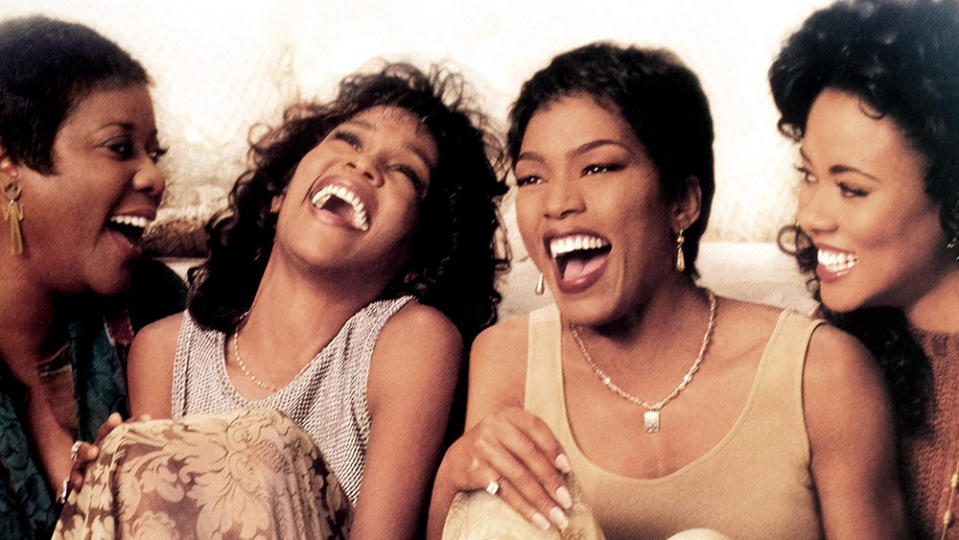
DEADLINE: Let’s take another look back at some of the amazing films you’ve done. You collaborated with Terry McMillan twice with Waiting to Exhale and How Stella Got Her Groove Back. People still love those films, love the books. What were some of your memories of working on those films and collaborating with Terry?
I was very excited to collaborate with Terry because I was living in New York, riding the subway and it was just an exciting time. We would see that book [Waiting to Exhale] in everyone’s hands. So, you had an inkling that the story about these four women was going to be a success — that if they were ready to read the old-fashioned way that we were going to love to see these characters realized right before their eyes.
It was a time when this was perhaps the beginning of seeing Black female characters in a complex way, and it was completely out of this incredible woman’s active imagination. So, it was a wonderful time to be able to arrive on set and work with beautiful actresses whose work I knew and did not know, and to establish this camaraderie and to put in work that would become iconic and celebrated the world over.
DEADLINE: I think that word iconic can also describe Queens, groundbreaking in how it’s depicting the female leadership in the animal kingdom and the female cinematographers and crew breaking into such a male-dominated world.
I think to say that it’s trailblazing does not overstate it, that it breaks free from conventional narratives of storytelling. And I think the focus and the spotlight are the matriarch and her drive to build and maintain her queendom, of course, led by the production team and the crew. I think in its totality, it encompasses what and who we as women are, and that strength and resiliency as well as creativity.
Best of Deadline
‘Bridgerton’ Season 3 Part 1 Recap: What to Remember for Part 2
Hollywood & Media Deaths In 2024: Photo Gallery & Obituaries
Sign up for Deadline's Newsletter. For the latest news, follow us on Facebook, Twitter, and Instagram.

 Yahoo Lifestyle
Yahoo Lifestyle 
